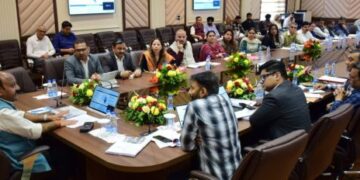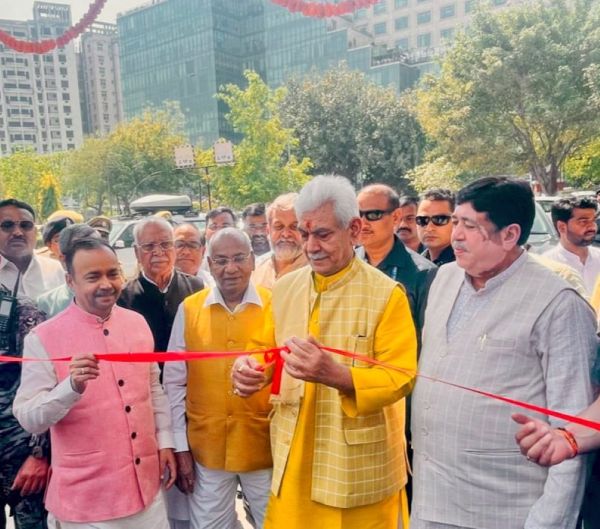New Delhi: In less than a month since taking charge, the Election Commission of India (ECI) under Chief Election Commissioner (CEC) Gyanesh Kumar, along with Election Commissioners Dr. Sukhbir Singh Sandhu and Dr. Vivek Joshi, has undertaken a series of bold initiatives aimed at strengthening the electoral process and enhancing voter participation.
With nearly 100 crore eligible voters, the ECI has set a clear roadmap to ensure transparency, efficiency, and accessibility in the election process. Political parties, recognized as key stakeholders, are being actively involved in decision-making at the grassroots level.
Key Measures Introduced by the ECI
1. Digital Training for 1 Crore Election Officials
To bolster election preparedness, the ECI has launched a massive digital training program for nearly one crore election personnel. This initiative includes:
Development of digital training kits in multiple Indian languages for easy understanding.
Animated videos and an integrated dashboard to streamline training.
A structured training module for Booth Level Officers (BLOs) to be rolled out in the coming days.
A two-day conference of Chief Electoral Officers (CEOs) from all states and Union Territories was held on March 4-5 at IIIDEM, New Delhi, where District Election Officers (DEOs) and Electoral Registration Officers (EROs) participated for the first time. The conference mapped out 28 key stakeholders responsible for election management.
2. Strengthening Voter Roll Integrity
The Commission has initiated technical consultations with the Unique Identification Authority of India (UIDAI) to tackle voter duplication. In a significant decision, the ECI has vowed to eliminate duplicate EPIC numbers within three months, addressing a longstanding issue.
Additionally, the ECI is reinforcing regular voter list updates in close coordination with birth and death registration authorities. Political parties have been reassured that inclusions or deletions in the electoral rolls strictly follow legal procedures under the Representation of the People Act, 1950.
Notably, after the Special Summary Revision (SSR) exercise conducted in January 2025, only 89 first appeals and one second appeal were filed, underscoring the robustness of the electoral roll correction process.
3. Ensuring Voter Convenience & Accessibility
The Commission has set a maximum cap of 1,200 electors per polling station, ensuring accessibility within 2 km of voters’ residences, even in remote areas. Special attention is being given to urban areas to counter voter apathy, with polling stations planned within high-rise buildings and residential colonies.
Additionally, the ECI is committed to ensuring basic facilities (AMF) at every polling station, even in the most rural and inaccessible locations.
4. Increased Engagement with Political Parties
Recognizing the importance of political parties in the electoral process, the ECI has directed that 5,000 all-party meetings be conducted by:
36 CEOs, 788 DEOs, and 4,123 EROs across India by March 31, 2025.
These meetings aim to address concerns, clarify electoral laws, and ensure smooth election operations at the grassroots level.
Furthermore, the Commission has invited suggestions from all political parties on election-related matters, with a deadline of April 30, 2025. Political representatives have also been extended an invitation to meet the Commission in Delhi at a mutually convenient time.
A Roadmap for Transparent & Inclusive Elections
The Election Commission’s latest initiatives represent a proactive approach toward enhancing electoral efficiency, ensuring greater voter participation, and upholding the integrity of India’s democracy. By focusing on digital training, electoral roll accuracy, improved polling station accessibility, and increased engagement with political parties, the ECI is setting the stage for a transparent and seamless electoral process in the country.





